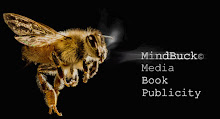
A drug deal goes bad resulting in a triad of chases. This in turn will involve a psychotic hit man as one of the central actors. Sound familiar? If it does, the question of why Urban Waite created a work so derivative of McCarthy’s “No Country For Old Men” will haunt the reader for the rest of the novel.
The novel in this case concerns Bobby Drake, a sheriff deputy who intercepts Phil hunt, a local drug runner picking up a large heroin shipment twenty miles from the Canadian border. An arrest and seizure of the heroin leaves Hunt on the run, Drake in pursuit, and the novel, along with its parallels to the above mentioned work, sets into motion.
Things do move along swiftly. The events trigger one another as the higher-ups in the drug trade move to remedy the initial mishap, much in the way No Country works. The primary villain is Grady, a psychotic prep cook and hired hit-man who’s fortunately quite skilled with his knives which he uses to slash his way through much of the novel. His presence is rather unremarkable however, more of a collection of bad-guy killer clichés than a figure the reader fears. When
Grady himself is pursued by some other killers (much as in the earlier novel) we root for Grady since we know nothing about the others. The net effect, though not enough to salvage Grady from his leering B-movie cheesiness, does flesh out an interesting matrix of reader sympathy, which glides from Hunt to Drake to Grady and back again. This mixes well with the conflicts throughout the narrative and marks the strong points of the novel.
In general the reading experience is a lively one. The bottom line, however, is the puzzle of why Waite created a story so similar to McCarthy’s. In the absence of an answer to justify this, one is better off reading the McCarthy novel.
~By Staff Writer Benjamin Boyce

No comments:
Post a Comment